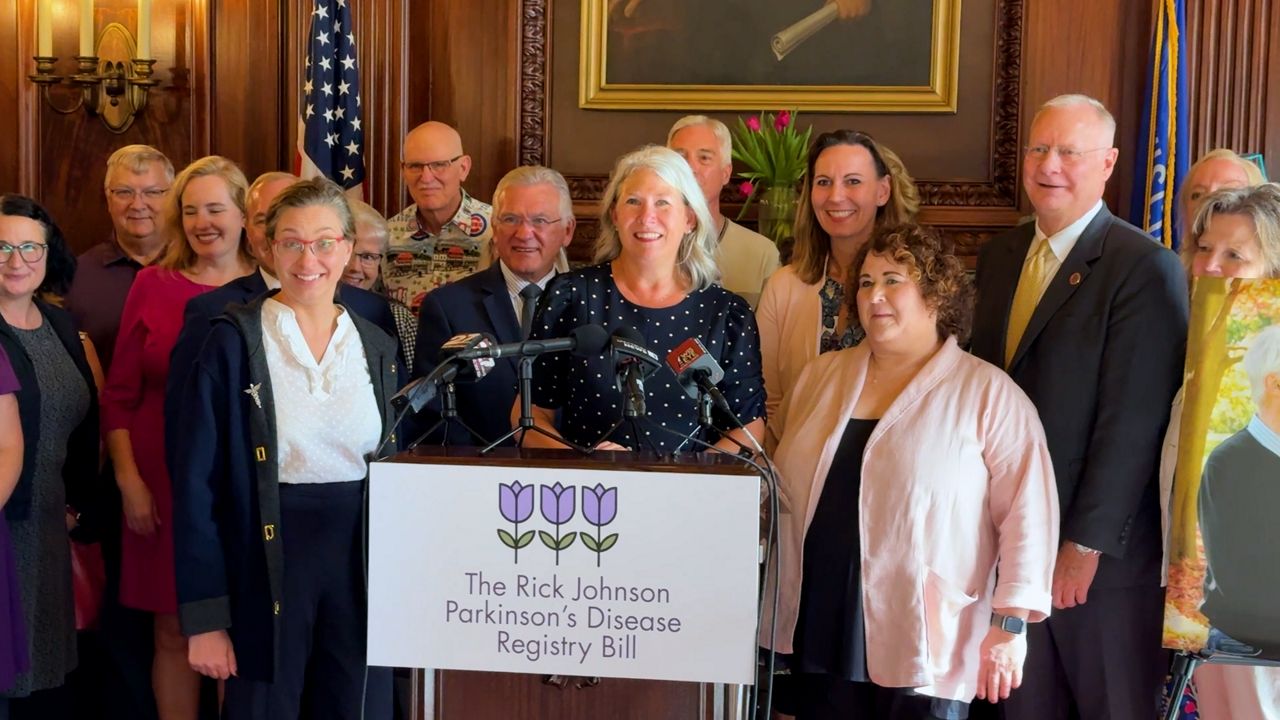
MADISON, Wis. — Parkinson’s disease is the fastest-growing and second-most common neurodegenerative disease, with approximately 21,000 Wisconsinites living with it.
State lawmakers are now working in bipartisan fashion to create a system that could help identify risks and provide better treatment. Earlier this week, the Rick Johnson Parkinson’s Disease Registry was proposed with Democrats and Republicans standing side by side.
The push first began in May of 2024, after Stephanie Johnson of Fitchburg, Wis., had cared for her late husband Rick, who lived with Parkinson’s for 13 years.
“It was an honor and a privilege to be his wife for 34 years, and I will love him forever,” Johnson told reporters during a press conference. “Three months after Rick died, I was diagnosed with Parkinson’s.”
Johnson won’t forget that day in March 2024 when she received her official diagnosis.
“And I thought, this can’t possibly be what I’m fearing it is. And I chalked it up to caregiver fatigue and anticipatory grief,” she explained. “But deep down, I knew. I knew. I had been caring for my husband for 13 years. I knew.”
Johnson and her late husband, Rick, were two of six people living in the same neighborhood diagnosed with Parkinson’s disease. If that weren’t troubling enough, she discovered there was no way to determine if she was a part of a so-called disease cluster.
“We don’t have a systematic way of tracking the incidence and prevalence of Parkinson’s in Wisconsin,” Johnson added. “We don’t have a Parkinson’s disease registry. So, my brain went to what does it take?”
The answer: state lawmakers from both sides of the aisle.
“This is such an opportunity that Stephanie has presented to one: honor Rick’s memory, but also to help patients and Wisconsinites going forward,” State Rep. Lisa Subeck, D-Madison, said. “The reality is, we are not going to get closer to curing Parkinson’s unless we do the research.”
Right now, 15 other states have a Parkinson’s disease registry that helps pinpoint risks and ultimately leads to better treatments.
“This will allow us to actually track the number of new cases and existing cases, it will also allow us to look for environmental risk factors, potentially genetic risk factors [and] track clinical outcomes,” Dr. Brian Nagle, who spoke in favor of creating the registry, said.
Wisconsin’s registry would be housed at the University of Wisconsin School of Medicine and Public Health to collect critical information for tracking Parkinson’s disease and related disorders in the Badger State.
“We just don’t want to continue to guess. We want to have an opportunity where we can pull this data together. We can use the amazing minds here in Wisconsin, at our university, to analyze this, to process this, and to come up with a plan to address this for folks that are affected for this in the future,” State Sen. Rachael Cabral-Guevara, R-Appleton, added.
The authors of the legislation hope it will be passed and signed into law by early next year.


